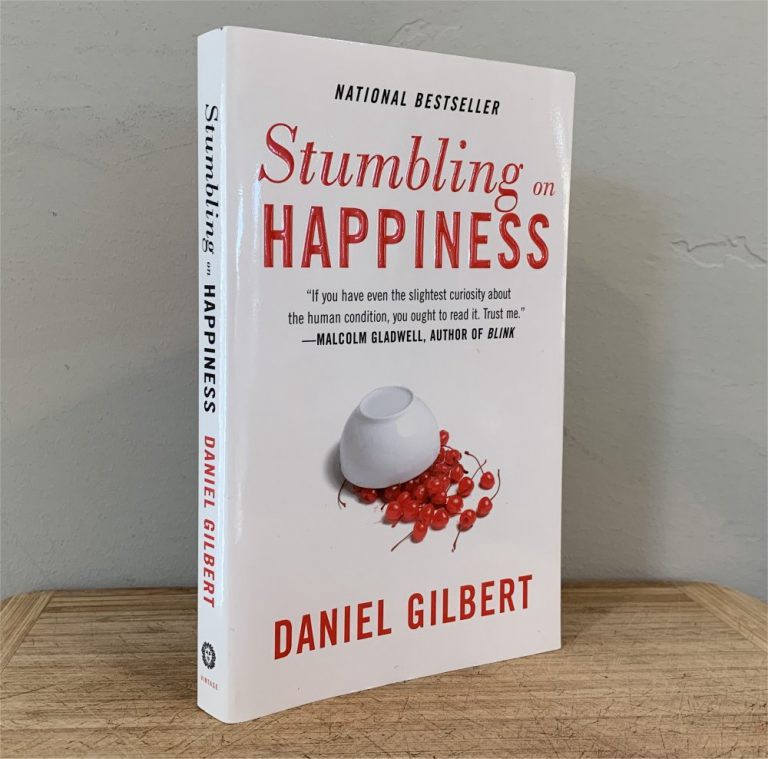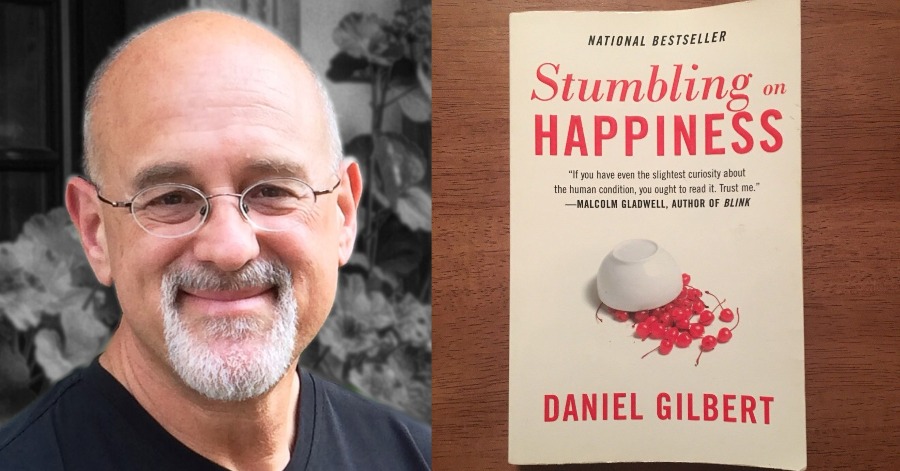‘Stumbling On Happiness’ is written by Professor Daniel Gilbert, who was the winner of the Royal Society of Science Prize in 2007. It has been described as very interesting, and funny. Gilbert demonstrates that many people do not know how to make themselves happy and he explains why this is the case. According to Professor Gilbert, people don’t know how to predict what will please their future selves. ‘Stumbling on Happiness’ sees Gilbert explain how our brains predict the future and explore whether the brain is able to imagine what it will enjoy.
Prof. Gilbert draws upon the fields of psychology, neuroscience, economics, and philosophy. Gilbert, who is actually a pre-eminent psychologist, explores another area in this book that is human motivation. Within the book ‘Stumbling on Happiness’, the author reveals the so-called secrets of motivation. He explores some interesting questions, including why people order different meals when eating with others, rather than instead selecting what they want, why shoppers who can’t get refunds are happier, and also why even though couples claim their children are a source of joy, they are less satisfied after having their children.

Professor Daniel Gilbert who was born in the year of 1957 is a Professor of Psychology at Harvard University. He has previously won a number of awards for teaching and research. In this particular book, the greatest ability of the human brain is to imagine, to see the world as it has never been before. Our brain makes predictions incredibly quickly and about nearly everything in life. When our experiences don’t match what our brain expects, we feel surprised.
The frontal lobe is responsible for planning and anxiety which are the two key future-oriented functions. Our frontal lobe is what allows us to be the only animal that experiences and envisions the future as we do. We like to daydream because the mere dream itself can be a joy. Within a few weeks, even earthquake survivors tend to return to previous levels of optimism. If we don’t have the opportunity to predict our future it is scarier than if we can predict is bad future.
One of the central needs of humans is to control things. Enacting control over your own life is a source of pleasure. Imagination’s three shortcomings are imagination tends to add and remove details, but people do not realize that key details may be fabricated or missing from the imagined scenario, imagined futures and pasts are more like the present than they actually will be or were and imagination fails to realize that things will feel different once they actually happen most notably, the psychological immune system will make bad things feel not so bad as they are imagined to feel.
Experience and awareness are closely related but not the same. Experience refers to partaking in an event. Awareness refers to being cognizant that the event is happening. Psychological sciences will always be imperfect because we are trying to observe someone else’s subjective experience, but it’s the best we’ve got and the closest an outside observer can get to understanding the inside of someone else’s mind.
Sources: gooreads.









Leave a Comment